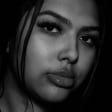Film Production Speakers
You've got an audience that loves behind-the-scenes stories, real industry insights, and honest takes on what it takes to make a film.
But where do you find film production speakers who don't just talk credits but actually connect? It's not always clear who knows their stuff and who just knows how to sell it.
If you're asking yourself how to find the right film production speakers for your event, show, or podcast, you're not alone.
The good ones can take your audience inside the process-from budgeting and logistics to on-set problem solving-without making it feel like a lecture.
This guide is built to help you find those voices. You'll get a sense of what film production speakers actually bring to the table, what makes each one stand out, and who they might be a great fit for.
I've seen how the right speaker can shift the energy in a room or spark a conversation that lasts long after the recording ends.
Take a look through the featured film production speakers below, and if someone clicks with you, go ahead and book them for your next event.
Top Film Production Speakers List for 2026
Jayson Johnson
Award-Winning Film Director | 6 Wins Across 92 Global Film Festivals | Master of Cinematic Storytelling
Alexia Melocchi
Self Made Hollywood Producer, published author and celebrated speaker on all things Hollywood and being a female CEO.
Marc Aflalo
Transforming ideas into impactful broadcasts, one project at a time.
Peter D. Marshall
I am a filmmaker and directing coach from Vancouver, now living in Shanghai, with over 50 years of film industry experience.
David Hulbert
I survived when doctors told me I wouldn't. My perception of everything changed forever.
Aaron Wiggs
Aaron Davon - The Multifaceted Creative: Merging Marketing, Media, and Community Impact.
Christiaan Willems
How to NOT to come across as a 'Complete Dick' in your Business Videos
Steve Austins
Helping individuals and business people get their podcast journey started.
Sue Collins
Filmmaker, Producer and Presenter. Host of the Documentary Filmmaker Podcast and co-founder of Moonshine Agency.
What Makes a Great Film Production Speaker
A great film production speaker combines deep industry experience with the ability to translate complex ideas into relatable stories. They're not just rattling off jargon or listing credits. They're connecting the dots between creativity, business, and audience impact. Whether they're breaking down how a low-budget indie film made it to Sundance or explaining how to manage a 200-person crew on a Marvel set, they make it feel personal.
But it's not just about knowledge. Delivery matters. The best speakers use tone, pacing, and body language to keep you engaged. They're not afraid to pause, to laugh, to challenge the audience. They know when to drop a technical insight and when to share a behind-the-scenes moment that makes everyone lean in.
And finally, great film production speakers are generous. They're not gatekeeping. They're lifting the curtain, offering real takeaways, and inspiring the next generation of creators. Whether they're speaking to a room of students in Nairobi or a virtual summit of producers in Los Angeles, they show up with the same clarity and passion. That's what sets them apart.
How to Select the Best Film Production Speaker for Your Show
1. Define Your Audience and Objectives.
- Ask yourself: Who's tuning in? Are they indie filmmakers, students, studio execs, or general film lovers?
- Clarify your goal: Are you looking to educate, inspire, entertain, or all three? This will shape the type of speaker you need.
2. Identify the Right Expertise.
- Not all film production speakers are created equal. Some are experts in cinematography, others in budgeting, post-production, or directing.
- Match their niche to your topic. For example, if your show focuses on sustainability in film, look for someone who's worked on green productions like those promoted by BAFTA's albert initiative.
3. Review Their Speaking Style.
- Watch past talks, panels, or interviews. Are they engaging? Do they explain things clearly? Do they connect with different types of audiences?
- Platforms like Talks.co often include speaker pages with clips, bios, and audience reviews - use those to vet them.
4. Consider Diversity and Representation.
- Aim for a mix of voices. Include speakers from different regions, genders, and backgrounds. A Nigerian line producer might bring a completely fresh perspective compared to a Hollywood veteran.
5. Reach Out with a Clear Ask.
- Once you've shortlisted candidates, contact them (or their reps) with a clear pitch about your show, your audience, and what you're hoping they'll bring to the table.
The right speaker doesn't just fill a slot - they elevate your entire show. So take the time to get it right.
How to Book a Film Production Speaker
1. Start with Research.
- Use platforms like Talks.co to browse speaker profiles. Filter by topic, availability, or region.
- Look at film festivals, industry panels, or YouTube interviews to discover speakers who resonate with your show's vibe.
2. Create a Compelling Speaker Page or Pitch Deck.
- Include details about your show: audience size, format (live or recorded), past guests, and what makes your platform unique.
- Highlight the benefits for the speaker: exposure, networking, or alignment with their mission.
3. Reach Out Professionally.
- Contact them directly via email or through their agency. Keep it short, clear, and respectful of their time.
- Example: "Hi [Name], I host a weekly show for emerging filmmakers with 10k+ listeners. We'd love to feature you in an episode focused on [topic]. Are you open to a quick call to explore this?"
4. Negotiate Terms.
- Be upfront about compensation (if any), time commitment, and format.
- Some speakers may waive fees for educational or nonprofit events, while others have set rates. Be flexible but transparent.
5. Confirm and Prepare.
- Once booked, send a confirmation email with date, time, platform link, and any prep materials.
- Offer a pre-call to align on questions or themes. This helps them shine and ensures a smooth session.
6. Promote and Follow Up.
- Share their episode widely and tag them on social media.
- After the event, send a thank-you note and any audience feedback or engagement stats.
Booking a film production speaker is part relationship-building, part logistics. Nail both, and you're on your way to a standout show.
Common Questions on Film Production Speakers
What is a film production speaker
Unlike actors or directors who might focus on performance or vision, film production speakers often dive into the nuts and bolts: scheduling, budgeting, crew management, set logistics, post-production workflows, and more. They might be producers, line producers, cinematographers, editors, or even location managers - anyone with deep knowledge of how films are made.
What sets them apart is their ability to translate technical know-how into accessible, engaging content. Whether they're explaining how to shoot a feature on a micro-budget or how to navigate union rules in different countries, they're bridging the gap between industry practice and public understanding.
These speakers are often invited to speak at events like SXSW, TIFF Industry, or even niche summits like Liam Austin's virtual events, where they can reach global audiences hungry for real-world insights. In short, a film production speaker is both a practitioner and a teacher - someone who's been in the trenches and knows how to talk about it.
Why is a film production speaker important
First, they demystify the process. From pre-production planning to post-production delivery, they walk audiences through the real steps, decisions, and trade-offs that shape a film. This is especially valuable for emerging creators who might have the passion but not the roadmap.
Second, they offer context. A speaker with experience in both Hollywood and Nollywood can highlight how production workflows differ across cultures and economies. That kind of comparative insight is gold for global audiences.
Third, they help raise the bar. By sharing best practices - like how to run an efficient set, manage safety protocols, or adopt sustainable production methods - they push the industry forward. Think of speakers who advocate for green filmmaking or inclusive hiring practices. Their talks don't just inform; they influence.
Finally, they inspire action. Whether it's a student deciding to pursue a career in production or a producer rethinking their workflow, a strong speaker can spark real change. So while they may not be household names, film production speakers are essential voices in shaping the future of film.
What do film production speakers do
- Deliver Talks and Keynotes. They speak at conferences, film festivals, universities, and online summits. Topics might include budgeting for indie films, managing international shoots, or using new tech like virtual production.
- Participate in Panels and Q&A Sessions. These speakers often join discussions with other industry professionals, offering diverse perspectives on current trends, challenges, and innovations in film production.
- Host or Guest on Podcasts and Webinars. They appear on shows to break down complex topics in a conversational way. For example, a line producer might explain how to schedule a 30-day shoot or how to handle union negotiations.
- Mentor and Train. Many film production speakers also run workshops or training sessions, especially for emerging filmmakers or students. They might teach how to create call sheets, manage a crew, or use production software like Movie Magic.
- Advocate for Industry Change. Some speakers use their platform to push for better labor practices, sustainability, or diversity in production teams. Their influence can shape policies and shift mindsets.
In essence, film production speakers are translators between the industry and the public. They take the complex machinery of filmmaking and make it understandable, actionable, and often, deeply motivating.
How to become a film production speaker
1. Define Your Niche and Expertise
- Are you a cinematographer, producer, editor, or director? Get specific.
- Focus on what makes your experience unique: indie filmmaking, big-budget productions, international co-productions, etc.
- Tip: Use Talks.co to browse other speakers in film production and see how they position themselves.
2. Build Your Signature Talk
- Craft a talk that delivers value: think behind-the-scenes insights, production hacks, or lessons learned from set.
- Structure it with a clear beginning, middle, and end. Use real-world examples and case studies.
- Pro tip: Record a short version (5-10 minutes) and upload it to your speaker page on Talks.co.
3. Create a Speaker Page
- Your speaker page should include a bio, topics you speak on, testimonials (if you have them), and a video clip.
- Add links to your IMDb profile, portfolio, or any press coverage.
- Talks.co makes this easy and helps connect you with event hosts.
4. Start Small, Then Scale
- Reach out to film schools, local festivals, or online summits. Offer to speak for free or a small fee to build your reel.
- Use platforms like Talks.co to get discovered by hosts looking for film production experts.
- After a few gigs, start charging and refining your pitch.
5. Network with Hosts and Other Speakers
- Join speaker communities, attend virtual summits, and connect with other creatives.
- Collaborate with podcast hosts, YouTubers, or educators who need expert guests.
- The more visible you are, the more speaking invites you'll get.
Remember, the goal is to turn your production experience into a compelling narrative that educates and inspires. Start with your story, then build from there.
What do you need to be a film production speaker
Industry Experience
You don't need to have won an Oscar, but you should have hands-on experience in film production. Whether you've worked on indie films, commercials, or major studio projects, your credibility comes from real-world involvement. Roles like producer, director, cinematographer, or even production coordinator can all serve as strong foundations.
Presentation Skills
Being a great speaker means being able to hold attention and deliver value. You'll need to:
- Structure your talks with a clear narrative.
- Use visuals or clips effectively.
- Adapt your tone and content for different audiences (e.g., students vs. professionals).
A Clear Message
What's your unique angle? Maybe you specialize in low-budget filmmaking, sustainable production, or post-production workflows. Define your core message and build your talks around it.
A Speaker Platform
You'll need a place to showcase your speaking profile. Talks.co is a great tool for this. It lets you:
- Create a speaker page with your bio, topics, and video clips.
- Connect with event hosts looking for film production experts.
- Manage bookings and inquiries in one place.
Marketing Materials
To get booked, you'll need:
- A speaker reel or sample talk.
- A professional headshot.
- A one-sheet (PDF overview of your speaking topics, bio, and testimonials).
In short, being a film production speaker means combining your industry chops with strong communication skills and a clear personal brand. Tools like Talks.co can help you package that into something event hosts are excited to book.
Do film production speakers get paid
Experience and Reputation
- Newer speakers or those just transitioning from production roles may start with free or low-paid gigs to build credibility.
- Established names with IMDb credits, festival awards, or viral content can command higher fees.
Type of Event
- Film festivals: Often pay modest honorariums or cover travel/accommodation.
- Corporate events or internal training: These tend to pay more, especially if the speaker tailors content to media or marketing teams.
- Online summits and webinars: Payment varies. Some offer flat fees, others revenue share, and some are unpaid but offer exposure.
Region and Market
- In the U.S. or U.K., fees are generally higher than in smaller markets.
- In emerging film hubs like Nigeria or South Korea, speakers may be compensated differently-sometimes with perks or cross-promotional deals.
Data Snapshot
| Speaker Level | Typical Fee Range (USD) |
|---|---|
| Beginner | $0 - $500 |
| Mid-level | $500 - $2,000 |
| High-profile | $2,000 - $10,000+ |
- Speaking can diversify your income.
- Builds your brand and authority.
Cons
- Inconsistent income unless you're in high demand.
- Travel and prep time can be extensive.
So yes, film production speakers do get paid, but like in film itself, the pay scale varies widely based on your role, reach, and reputation.
How do film production speakers make money
1. Paid Speaking Engagements
This is the most straightforward method. Speakers are hired to present at:
- Film festivals (e.g., Sundance, TIFF)
- Industry conferences (e.g., NAB Show, SXSW)
- Corporate events or internal trainings for media companies
2. Online Summits and Webinars
Platforms like Talks.co connect speakers with virtual event hosts. Some pay flat fees, while others offer affiliate commissions or revenue shares based on ticket sales.
3. Workshops and Masterclasses
Many speakers create their own educational offerings:
- Half-day or full-day workshops on topics like budgeting, directing actors, or post-production workflows.
- Online courses hosted on platforms like Teachable or Skillshare.
4. Consulting and Coaching
Some speakers offer one-on-one or group consulting for indie filmmakers, studios, or production startups. This can include script feedback, production planning, or team training.
5. Book Deals and Licensing
If a speaker has a compelling framework or story, they may land a publishing deal or license their content to film schools or training programs.
6. Sponsorships and Brand Collaborations
High-profile speakers may partner with gear companies, software brands, or streaming platforms for sponsored talks or branded content.
7. Affiliate Marketing
Speakers often recommend tools or courses and earn commissions via affiliate links. For example, promoting editing software or production gear.
The most successful film production speakers diversify their income streams. They don't rely solely on speaking fees but use their platform to build a broader business around their expertise.
How much do film production speakers make
Entry-Level Speakers
- Often unpaid or paid modestly ($100 to $500 per event).
- Typically speak at local film schools, community events, or online panels.
- Use these gigs to build a portfolio and speaker reel.
Mid-Tier Speakers
- Earn between $500 and $2,500 per talk.
- Often have IMDb credits, festival experience, or a strong online presence.
- Speak at regional festivals, industry meetups, and virtual summits.
High-Profile Speakers
- Can command $5,000 to $15,000+ per keynote.
- Include Oscar nominees, viral filmmakers, or studio execs.
- Booked for major conferences, corporate trainings, and international events.
Additional Revenue Streams
- Workshops: $50 to $500 per attendee.
- Online courses: $1,000+ per month in passive income.
- Consulting: $100 to $300/hour.
Annual Income Potential
| Speaker Level | Estimated Annual Income |
|---|---|
| Beginner | $0 - $5,000 |
| Mid-level | $10,000 - $50,000 |
| High-profile | $100,000+ |
How much do film production speakers cost
1. Local or Emerging Speakers
- Cost: $0 to $500
- Ideal for: Film schools, community events, student festivals
- These speakers are often looking to build their portfolio and may speak for free or a small honorarium.
2. Mid-Level Professionals
- Cost: $500 to $2,500
- Ideal for: Regional festivals, online summits, industry panels
- These are experienced filmmakers or producers with solid credentials and speaking experience.
3. High-Profile Industry Names
- Cost: $5,000 to $15,000+
- Ideal for: Major conferences, corporate events, international film expos
- Includes award-winning directors, studio executives, or viral content creators.
4. Virtual vs. In-Person
- Virtual talks often cost 30-50% less than in-person due to no travel or lodging.
- Some speakers offer package deals for multiple sessions or Q&A add-ons.
5. Additional Costs
- Travel and accommodation (if in-person)
- AV requirements or tech support
- Licensing fees if the speaker uses proprietary content or film clips
Booking Tips
- Use platforms like Talks.co to compare speaker profiles and pricing.
- Be clear about your budget and expectations upfront.
- Consider offering value beyond cash: media exposure, networking, or future opportunities.
In short, the cost of a film production speaker depends on their profile, the event type, and the format. There's a speaker for every budget-you just need to know where to look.
Who are the best film production speakers ever
- Robert Rodriguez: Known for 'El Mariachi' and 'Sin City', Rodriguez is a master of low-budget filmmaking. His talks often focus on resourcefulness and DIY production.
- Ava DuVernay: Director of 'Selma' and 'When They See Us', DuVernay speaks powerfully on inclusion, storytelling ethics, and the future of media.
- Werner Herzog: Legendary for his philosophical and often eccentric takes on filmmaking. His masterclasses are part storytelling, part existential exploration.
- Spike Lee: With decades of experience, Lee shares insights on independent production, cultural narratives, and directing with purpose.
- Kathryn Bigelow: The first woman to win the Oscar for Best Director, Bigelow speaks on leadership in high-pressure environments and cinematic realism.
- George Lucas: Creator of 'Star Wars', Lucas has given rare but impactful talks on world-building, innovation, and the business of film.
- Kevin Smith: Known for his candid, humorous talks about indie filmmaking, distribution, and surviving Hollywood.
- Shonda Rhimes: While best known for TV, her TED Talk and public speaking engagements offer deep insights into production leadership and creative discipline.
- Christopher Nolan: Though not a frequent speaker, when he does appear, his discussions on analog vs. digital, narrative structure, and IMAX production are gold.
- Barbra Streisand: A trailblazer in directing and producing, Streisand has spoken about breaking barriers in a male-dominated industry.
These speakers have not only contributed to cinema but also elevated the conversation around how films are made and why they matter.
Who are the best film production speakers in the world
- Reed Morano (USA): Emmy-winning director and cinematographer, known for 'The Handmaid's Tale'. She speaks on visual storytelling and gender equity in production.
- Asif Kapadia (UK): Director of 'Amy' and 'Senna', Kapadia offers deep dives into documentary production and narrative editing.
- Haifaa al-Mansour (Saudi Arabia): Saudi Arabia's first female filmmaker, she speaks globally on navigating cultural barriers in production.
- Taika Waititi (New Zealand): Known for his humor and originality, Waititi shares insights on creative risk-taking and indigenous storytelling.
- Lulu Wang (USA/China): Director of 'The Farewell', Wang speaks on bilingual production, authenticity, and cross-cultural narratives.
- Alfonso Cuarón (Mexico): Oscar-winning director of 'Roma' and 'Gravity', Cuarón speaks on immersive production design and long-take cinematography.
- Nadine Labaki (Lebanon): Acclaimed for 'Capernaum', Labaki addresses social impact filmmaking and directing non-actors.
- Ryan Coogler (USA): Director of 'Black Panther', Coogler speaks on building inclusive production teams and franchise storytelling.
- Chloé Zhao (China/USA): Oscar winner for 'Nomadland', Zhao discusses minimalist production and working with real communities.
- Rungano Nyoni (Zambia/UK): Known for 'I Am Not a Witch', Nyoni speaks on blending folklore with modern production techniques.
These speakers represent a global, diverse, and forward-thinking approach to film production. Whether you're organizing a summit or looking for inspiration, these voices are shaping the future of the industry.
Common myths about film production speakers
This one pops up a lot. People assume that if you're a film director or producer, you can automatically step on stage and deliver a compelling talk. Not quite. While many speakers do come from a filmmaking background, being a film production speaker requires a different skill set: storytelling for live audiences, clarity under pressure, and the ability to translate technical jargon into engaging narratives. Think of Ava DuVernay. She's a brilliant director, but when she speaks at events like SXSW or Cannes, she tailors her message to inspire and educate-not just to showcase her work.
Myth #2: You need to have worked on blockbuster films to be taken seriously.
Wrong again. Some of the most impactful film production speakers come from indie circuits, documentary backgrounds, or even regional cinema. Take Rintu Thomas and Sushmit Ghosh, the Indian filmmakers behind 'Writing With Fire'. They've spoken at global festivals and panels, not because they had a $100M budget, but because their process, ethics, and storytelling approach resonate deeply.
Myth #3: It's all about the tech.
Sure, gearheads love a good RED camera breakdown, but most audiences want more than specs. They want to understand the 'why' behind the shot. Speakers who focus only on lenses and lighting setups often lose the room. The best film production speakers balance technical insight with creative vision. For example, when Bradford Young (cinematographer for 'Arrival' and 'Selma') speaks, he dives into emotional tone as much as camera angles.
Myth #4: You have to be based in LA or New York.
Not anymore. With the rise of virtual summits, hybrid film festivals, and global speaker platforms, geography is no longer a barrier. Speakers from Nairobi, Bogotá, or Brisbane are getting booked at the same rate as those in Hollywood. What matters is your message, not your zip code.
Myth #5: Speaking is a side hustle, not a real career.
Tell that to someone like Alex Ferrari, who turned his speaking gigs, podcasting, and online education into a full-fledged business. Film production speakers can build thriving careers by combining speaking with consulting, digital products, and strategic partnerships. It's not a hobby-it's a platform.
Case studies of successful film production speakers
Take Deborah Riley Draper. She began as an advertising executive before diving into documentary filmmaking. Her film 'Olympic Pride, American Prejudice' opened doors-not just to film festivals, but to speaking engagements at universities, corporate events, and cultural institutions. Her talks blend historical storytelling with modern-day relevance, and that's what makes her stand out.
Then there's Patrick Moreau, founder of Stillmotion and Muse Storytelling. He didn't just speak about filmmaking-he taught storytelling as a methodology. His sessions at NAB Show and Storytelling With Heart workshops became go-to resources for creatives and corporate teams alike. What made him successful? He systematized his creative process and made it teachable.
In a different lane, we have Nadine Labaki from Lebanon. After the success of 'Capernaum', she was invited to speak at the UN, film schools, and humanitarian summits. Her talks aren't just about cinema-they're about social impact, child rights, and the power of narrative to shift policy. That crossover appeal is what makes her a sought-after speaker.
Even in the virtual space, speakers like Noam Kroll have carved out a niche. Through webinars, online summits, and YouTube, he shares insights on micro-budget filmmaking and distribution. His transparency and tactical advice have earned him a loyal following-and consistent speaking invites.
What ties these stories together? None of them followed a single path. Some started in advertising, others in activism or tech. But they all found a way to translate their filmmaking journey into a message that resonates beyond the screen.
Future trends for film production speakers
First, hybrid events are becoming the norm. Film festivals, conferences, and industry panels are increasingly offering both in-person and virtual formats. This means speakers need to be just as engaging on a Zoom screen as they are on a stage. The ability to adapt your delivery-whether you're in a theater or on a laptop-is becoming a key differentiator.
Second, there's a growing demand for niche expertise. General talks about 'how to make a film' are being replaced by deep dives into specific areas: sustainable production, AI in editing, inclusive casting practices, or even blockchain in film financing. Audiences want speakers who can go beyond surface-level inspiration and offer real, applicable knowledge.
Third, storytelling is expanding beyond film. Speakers are being asked to connect filmmaking principles to other industries. For example, how can narrative structure improve brand storytelling? What can corporate teams learn from a director's approach to leadership on set? This cross-pollination is opening up new stages-from tech conferences to leadership retreats.
Here are a few key trends to keep an eye on:
- Micro-mentorship: Short, focused speaking slots (10-15 minutes) followed by interactive Q&A or coaching.
- Global access: More international festivals are offering speaker slots to voices from underrepresented regions.
- Creator economy crossover: Filmmakers with strong online brands (YouTube, Patreon, Substack) are being tapped for speaking gigs.
- Data-driven storytelling: Talks that incorporate audience analytics, engagement metrics, or social impact data are gaining traction.
If you're an aspiring speaker, now's the time to think beyond the film world. Your insights might be exactly what a startup accelerator, NGO summit, or university lecture series is looking for.
Tools and resources for aspiring film production speakers
StageTime University. Offers training specifically for speakers who want to refine their message, stage presence, and audience engagement. While not film-specific, their frameworks are adaptable for any niche.
MasterClass. Learn from top-tier filmmakers like Martin Scorsese and Mira Nair. Use their storytelling techniques to enhance your own presentations and workshops.
FilmFreeway. Not just for submitting films-many festivals list speaking opportunities, panels, and workshops. Set up a profile and keep an eye on open calls for speakers.
Canva. A go-to for creating visually compelling slide decks, speaker one-sheets, and promo materials. Use templates to keep your branding consistent across platforms.
Notion. Organize your talk outlines, pitch emails, and event contacts in one place. Especially useful if you're juggling multiple events or building a speaking business.
Vimeo OTT. If you're offering paid workshops or want to monetize your talks, this platform lets you create a branded video channel. Ideal for speakers with a strong visual portfolio.
LinkedIn Events. A surprisingly effective way to host your own virtual talks or panels. Build authority by curating your own conversations around film production topics.









